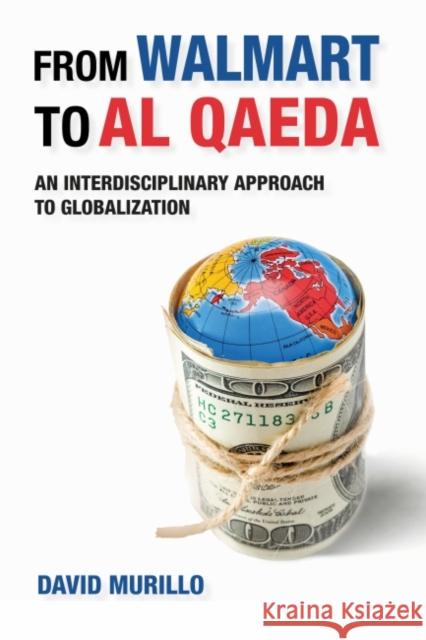From Walmart to Al-Qaeda: An Interdisciplinary Approach to Globalization » książka
From Walmart to Al-Qaeda: An Interdisciplinary Approach to Globalization
ISBN-13: 9781783535019 / Angielski / Twarda / 2015 / 254 str.
From Walmart to Al-Qaeda: An Interdisciplinary Approach to Globalization
ISBN-13: 9781783535019 / Angielski / Twarda / 2015 / 254 str.
(netto: 721,53 VAT: 5%)
Najniższa cena z 30 dni: 654,86
ok. 16-18 dni roboczych.
Darmowa dostawa!
From Walmart to Al Qaeda explains the fuzzy, complex and seemingly incomprehensible concept of globalization. What is globalization? What are the core topics, theories and competing ideologies? Are we walking towards homogenization or towards a global collision of cultures and identities? The potential risks and challenges for the global economy, corporations and political regimes are acknowledged by most but not fully understood. This book provides a refreshing new look at how society is being shaped by globalization. It tackles themes such as how Western societies discuss the role that democracy should play in a complex, interdependent world in which the growth priorities are set by big corporations, investment banks and sovereign funds. And how governments formerly elected by voters give way to ones run by technocrats who are unpopular with citizens but enjoy market support. This book is a highly stimulating read that looks at how these apparent destructive patterns can be both explained and potentially remedied.
Globalization is both a concept and a cliche. It is a term that is used to explain an economic system or the state of the world. David Murillo sets out the questions and identifies the inter-relationships of different disciplines to both understand the issues and also find solutions.
The book discusses globalization and current attempts to conceptualize and measure it. There are theoretical and ideological debates on whether globalization is inevitable and the various alternatives for interpreting how the world works. The book also explains the social and technological dimensions of globalization and cultural change.
From Walmart to Al Qaeda captures the key challenges of globalization for undergraduate and postgraduate students in sociology and business studies. It is also a thought-provoking book for general readers who have an interest in the phenomenon of globalization.











